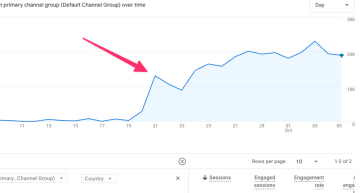Why I Choose HostGator Web Hosting for Geo Domaining Websites.
Quick Summary of Contents
For me, when it comes to web hosting, HostGator always tends to lurk somewhere in the top 5 or 10 web hosting providers recommended because of its performance.
And when I’m in need of a secondary web host to GoDaddy, my primary web hosting, HostGator’s flexibility, ease of use, and reliable performance meet my need for hosting geo domaining websites.
Again, I’m not transacting to the volume of an Amazon or Facebook, so I don’t need the complex technologies or service level agreements they use for simply flipping and developing geo service domain websites.
In fact, most of my geo domaining websites tend to be very simple and nominal in terms of their content, functionality, and dependence upon reliable performance and uptime.
And in total transparency, I can’t remember a single time I’ve ever hosted a geo domaining website using HostGator that suffered or was plagued by any downtime.
Each and every website, especially leased geo service domain websites that have made their way to page one of Google and are leased by customers has been supported by HostGator at some point.
In most cases, HostGator Business Cloud or WordPress Standard Linux accounts I set up are transferred to the businesses that lease to purchase the developed geo service domain websites.
Another reason I choose HostGator for the final home of most developed and ranking geo service domain websites is that their interface in its entirety is easy to use and beginner friendly for both web and domain management.
I can’t say that it’s always been the same for GoDaddy, although they are making strides here and there to simplify their user interface for managing their services.
Why I silo successful geo service domain websites with HostGator.
Also, I use HostGator from time to time when I want to launch websites using a different IP address.
I use a dedicated IP address to protect search rankings and keep from having other websites possibly interfere with my website by either overusing resources, or impacting website speed and page load time.
In addition, I recommend using dedicated IPs due to the potential of having geo-service domain websites related to or in close association with another spammy website in a shared hosting environment.
Shared hosting environments can host thousands of websites from one IP address.
In fact, I encourage you to watch Matt Cutts’ short video, which validates that shared hosting is fine, yet your website’s rankings could be at risk.
That’s scary, right? Well, this is the reason I recommend operating one website on a dedicated IP when possible, and that’s why I choose HostGator to provide me with such capabilities.
Now I could easily stay at GoDaddy and do this just as easily, but what if you had multiple websites in the same industry?
For example, let us say I set up one website using AustinCarpetCleaners.com and another using AustinCarpetCleaning.com in the same shared hosting environment.
And let’s say one site is spammy and the other is not, yet they share the same IP address. What could happen?
Well, search engines, especially Google, would notice that both websites share an IP address when launched using the same shared hosting account.
Therefore, by using different shared hosting accounts that are not on the same sub-class network, they are not perceived to be related to one another.
And this is one reason I tend to use GoDaddy and HostGator in moderation, although HostGator costs a bit more.
HostGator’s pricier than GoDaddy, but well worth it…
HostGator is a bit more pricey than GoDaddy. When comparing HostGator and GoDaddy pricing, be sure you are making an apples-to-apples web hosting comparison for service and pricing.
Here’s what I mean: don’t be fooled by HostGator’s low introductory rate, which is typically a 3-year commitment pricing versus GoDaddy’s 1-year commitment pricing.
Again, although a bit pricey, I only move geo service domain websites to developed and ranked HostGator, AND make money by either banner advertising, Google Adsense, affiliate income, or being actively leased by a business.
I have a firm rule I live by geo domaining websites MUST make enough or more to cover their hosting costs.
If you are just starting out, dipping one toe in the flip, and developing a geo-service domain strategy, then I suggest you enter the market and not invest too much into domain and web hosting services until you prove your strategy to be a successful one.
You don’t want just to buy, buy, buy, and buy geo service domains without a development or flip plan and strategy.
And on top of buying domains, you don’t want to make long-term annual web hosting commitments to a strategy you’ve yet to prove.
Whether GoDaddy or HostGator, I am only committed to multi-year web hosting after the 2nd annual renewal, and sites are turning revenue to support such costs.
Why? Well, in short, keeping my cost low keeps my margin high. Plus, in that time, I know whether or not the geo service domain websites will succeed.
In addition, the multi-year commitments for successful geo domain websites save and boost profits for my ever-expansive geo service domain strategy of flipping and developing.
Now you know who, why, and how I use HostGator as a secondary web host in my geo domaining strategy for flipping and developing geo service domain websites.
But it doesn’t stop with GoDaddy and HostGator…
In fact, I have a tertiary web hosting provider, but I only use this specific web hosting provider for testing a variety of unknown SEO strategies as it pertains to geo domaining.
But I’ll cover this web hosting provider next week, so stay tuned!
In the meantime, watch this quick geo domaining video and see if you completely develop and launched a geo service domain website by the next post.
Deal? See you around…













